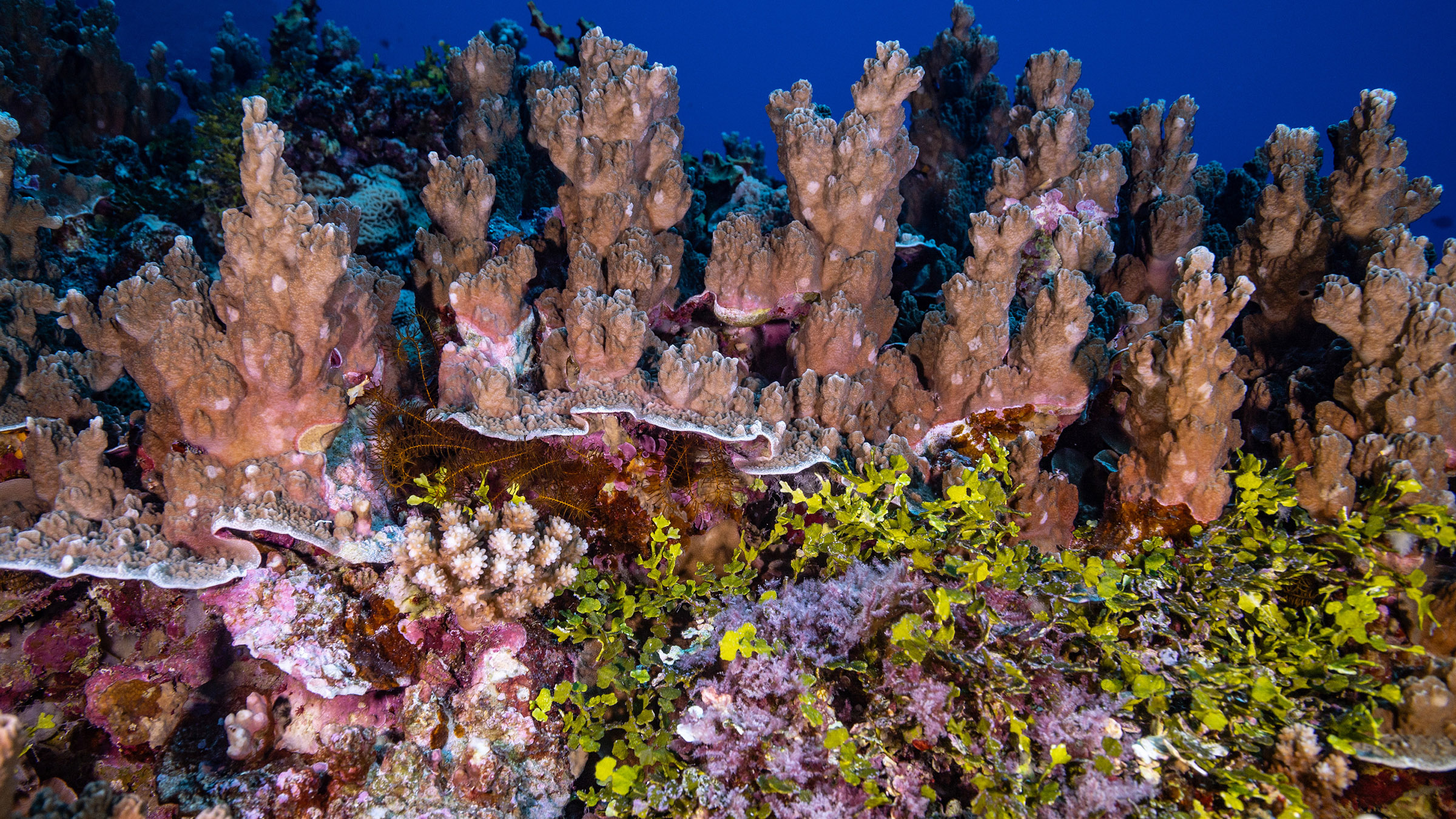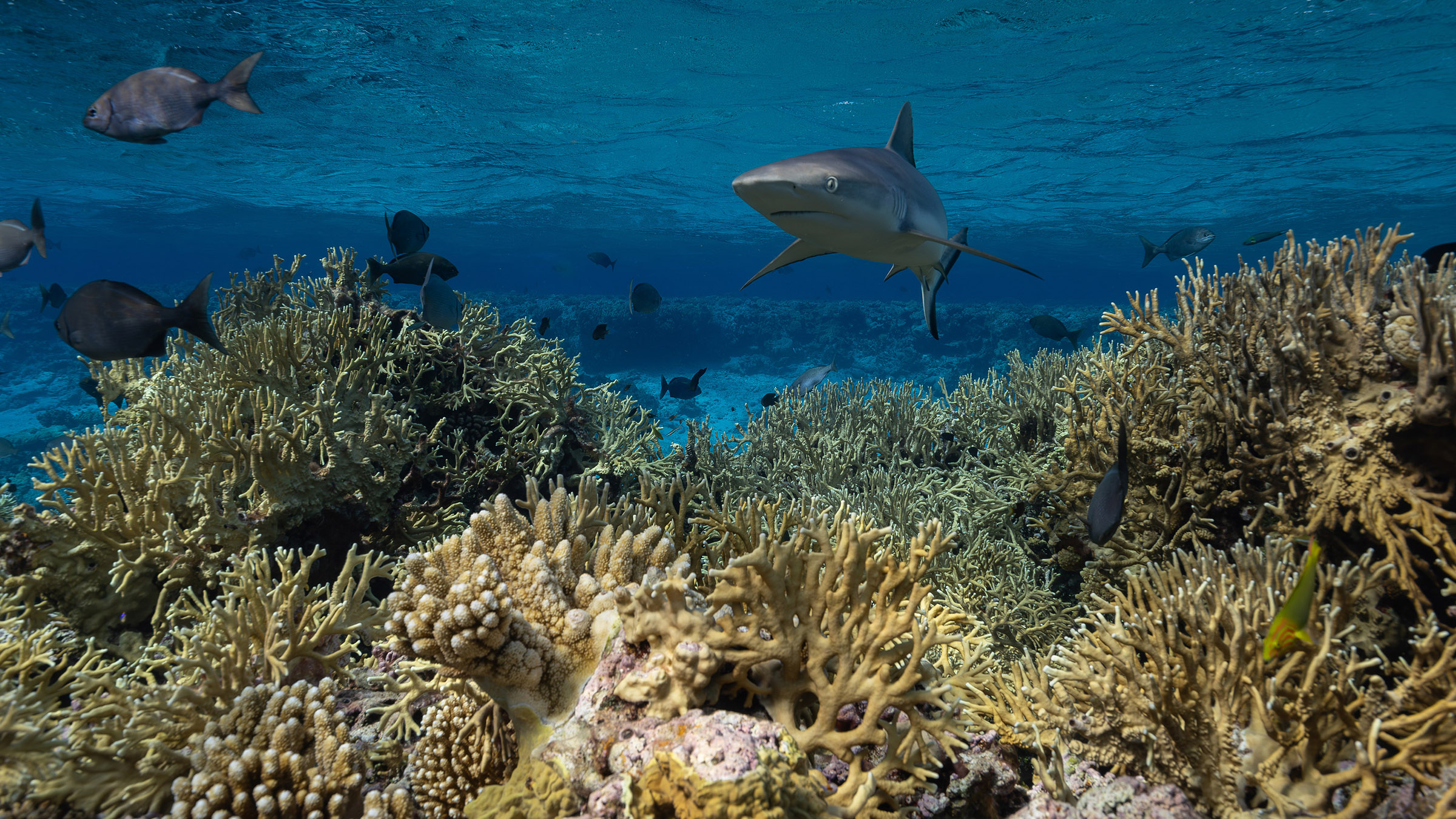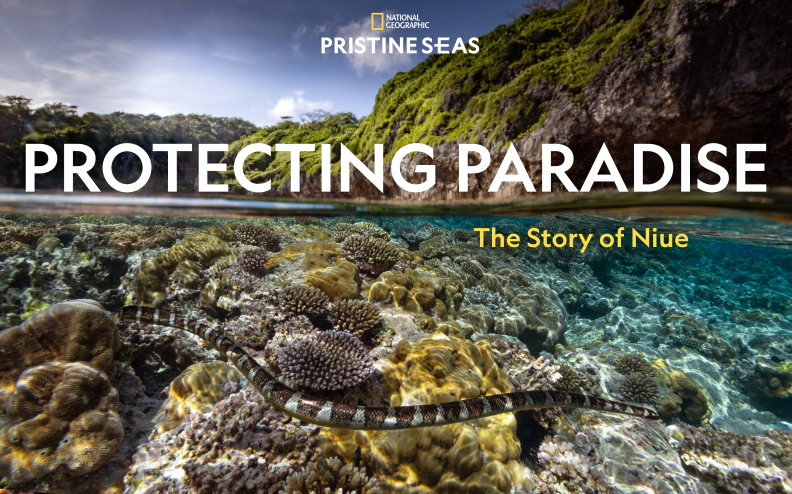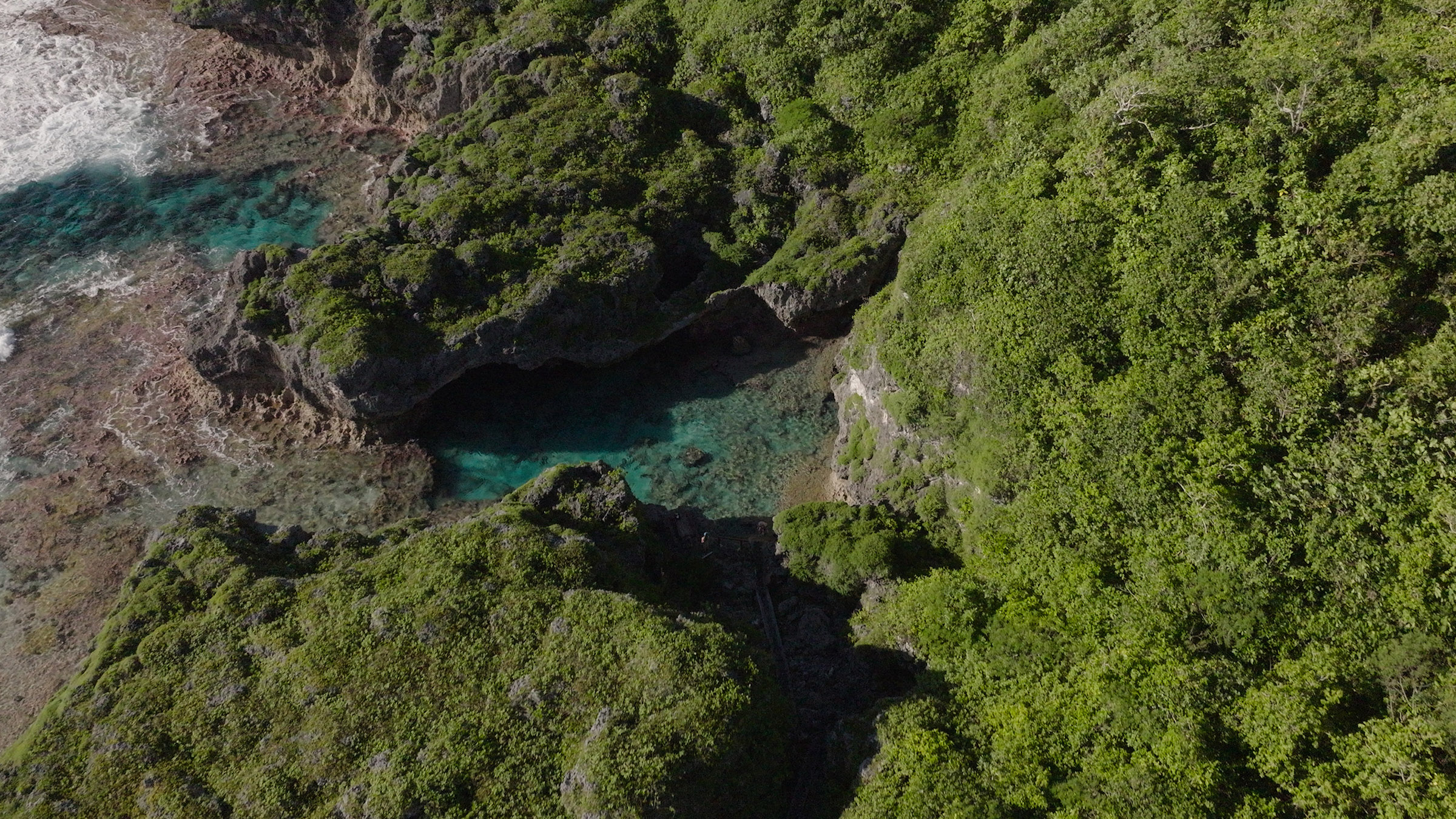In the vast expanse of the South Pacific, the tiny island nation of Niue, with a population just under 2,000, is making monumental strides in ocean conservation.
Despite its small size, Niue’s ambitious marine protection initiatives are garnering worldwide attention.
National Geographic’s newly released documentary, “Protecting Paradise: The Story of Niue,” captures the island’s pioneering efforts, coinciding with Ocean Month in June.
Niue, a raised coral atoll nestled between Fiji, Samoa, and Tonga, boasts a unique terrain. Steep limestone cliffs, caves, and exposed coral formations characterise its craggy coastline. Lying 120 nautical miles southeast of the main island is Beveridge Reef, a submerged atoll visible only at low tide, which harbours a significant array of marine life. In its shallow lagoon, species such as grey reef sharks, groupers, moray eels, and colourful corals thrive.

The Niuean people, in free association with New Zealand, have long relied on traditional management practices to sustain their waters. This deep connection to the sea is crucial for their livelihoods and the island’s marine ecosystem.
Today, their efforts are captured in the Sustainable Niue Ocean Wide (NOW) Project, led by Brendon Pasisi.
The NOW Project: A Blueprint for Marine Conservation
Launched in 2016, the NOW Project aims to establish a marine spatial management plan, a compliance strategy, and a sustainable financing strategy for Niue.
“We were fortunate to get funding support from Oceans 5, a philanthropic organisation, and that enabled us to undertake a comprehensive marine spatial planning process with the people of Niue,” Pasisi explains.
This plan includes the Moana Mahu Marine Protected Area (MPA), covering 40 percent of Niue’s Exclusive Economic Zone (EEZ), amounting to 127,000 square kilometers.
Pasisi elaborates on the project’s success: “We developed together with two regional intergovernmental bodies, the Forum Fisheries Agency (FFA) and The Pacific Community (SPC), a comprehensive compliance strategy to support this.”
In 2022, Niue declared its entire waters, including territorial seas, as a multiple-use marine park, achieving a 100 percent comprehensive management framework.
“Niue has exceeded its 30 by 30 target, having bopped up, 40 percent for conservation purposes,” he said.
Innovative Financing and Global Recognition
A significant component of the NOW Project is its sustainable financing strategy, culminating in the NOW Trust and the Ocean Conservation Commitment initiative. This innovative approach earned Niue the Fast Company Global Award for the nature section, recognising it as a world-changing idea.
“We’re now trying to leverage national, regional, and global support to give effect to on-the-ground actions and impacts,” Pasisi emphasised.
The initiative allows individuals and organisations worldwide to sponsor a square kilometer of the Moana Mahu Marine Protected Area.
“We’ve had fantastic response from all over the world. We have Germany leading for some unknown reason to us yet,” Pasisi said.
“It’s a way that people can make a meaningful contribution, and there’s equity in it because the government is for the large part covering 35 to 40 percent of that cost.”

Traditional Knowledge and Modern Science
Niue’s approach to marine conservation is deeply rooted in traditional knowledge.
“Traditional and customary practices are passed down through the generations and are respected by the elders.”
This foundation is crucial in integrating modern science to enhance awareness and adapt to changing ecosystems.
“Often you’ll set regulations or laws and people don’t have as much regard for them as if you were to put a traditional taboo on an area or a decision taken by the elders or church leaders will often carry a lot more respect from the local community folks,” he elaborates.
A Story of Hope and Resilience
The documentary “Protecting Paradise: The Story of Niue,” produced by National Geographic Pristine Seas, captures these efforts.
Mags Miller, a producer of the documentary, describes it as “a love letter to the ocean and to those who are taking bold steps to safeguard their waters, their communities, and their futures.”
One memorable moment for the film crew Miller recalls was during the Alofi South Marine Day celebration.
“Alofi South Marine Day starts very early in the morning and we had been filming with the community all day. When we arrived at the evening celebration, the community basically said ‘put down all your gear, sit with us and eat! Then you can go back to work – but we must feed you first.”

Through stunning visuals and heartfelt stories, the documentary highlights the significant impact of Niue’s marine protection efforts.
Miller hopes the film will inspire global ocean conservation, “We hope that the documentary will serve as an inspiration for other nations, their leaders, and coastal communities to feel empowered to make changes.”
Facing Climate Change Head-On
Niue’s efforts are particularly crucial in the face of climate change. The island nation is on the front line of its impacts, driving home the need for proactive planning and resilience.
“We recognise that we have little influence over climate change, but we’re on the front line of the impacts. We have to plan ahead and build resilience into the way we manage our ocean for our own survival,” Pasisi explains.
Niue’s holistic approach includes training local operators in sustainable ecotourism, moving towards eco-friendly products, and engaging the community in ocean protection.
“It’s about training local operators involved in sustainable ecotourism to make visitors aware, for them to adopt safe practices, not throwing away plastic bottles, plastics and moving to more eco-friendly products and containers.”
The Global Impact
“Protecting Paradise: The Story of Niue” is not just a documentary; it is a call to action.
“It demonstrates how even the smallest nations can lead the way in ocean conservation, providing a beacon of hope in an often dark landscape,” Miller said.
The film’s release during Ocean Month underscores the urgency and importance of protecting our oceans.
Pasisi reflects on the global significance of Niue’s efforts, “We hope that outreach will enhance the fundraising efforts that we have to equitably share the cost of Niue maintaining and protecting this place in its pristine condition for everybody, for the global community, as well as the Niuean’s themselves.”
As Niue continues its conservation journey, it stands as a testament to the power of traditional knowledge, modern science, and community-driven efforts.
Through the NOW Project and the Moana Mahu MPA, Niue is making significant strides in safeguarding its marine environment, proving that size is no barrier to making a global impact.















